
MBTAAnalysis: A look inside the MBTA
0 Comments
/
The MBTA shuttles over a million passengers a day around Greater…
 https://pioneerinstitute.org/wp-content/uploads/CloseupClock-1.jpg
739
1244
Mary Connaughton
https://pioneerinstitute.org/wp-content/uploads/logo_440x96.png
Mary Connaughton2017-02-20 12:34:192017-02-21 09:47:58The Clock is Ticking…….
https://pioneerinstitute.org/wp-content/uploads/CloseupClock-1.jpg
739
1244
Mary Connaughton
https://pioneerinstitute.org/wp-content/uploads/logo_440x96.png
Mary Connaughton2017-02-20 12:34:192017-02-21 09:47:58The Clock is Ticking…….
State Report Card on Telehealth Reform: Progress Slowed in 2024 Leaving Patients Without Access
Connecticut, Louisiana and Tennessee missed the mark; Colorado…

Pioneer Institute Study Calls for Reforms to Ensure that Pharmacy Benefit Manager Practices Benefit Patients, Healthcare Payers
Congress likely to take up PBM reform early this year; Pioneer Institute Calls for PBM’s to be more transparent

Pioneer Institute: 340B Hospitals Does Not Necessarily Translate to Charity Care
Review of Becker’s List of Health Systems with Strong Finances…

Average Weekly Wages of Healthcare Workers Across a Decade
From 2012-22 the healthcare and social assistance sector has seen the smallest growth in average weekly wages of any large industry in Massachusetts. This potentially has dire consequences on the employment crisis that this industry already faces.
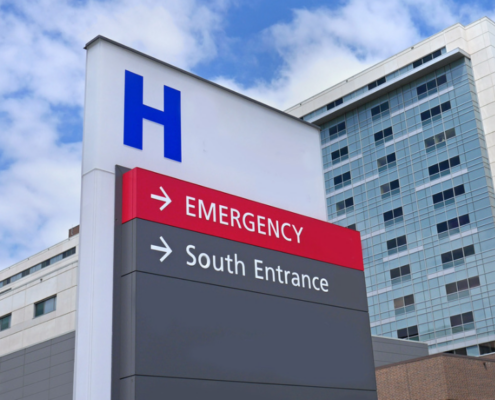
Do No Harm to the Health Policy Commission
With only weeks left in the Massachusetts legislative calendar,…
New Online Tool Tracks MA Hospital Revenue from Commercial Sources
A new online tool from Pioneer Institute shows a gradual increase in non-commercial (public payer) revenue at Massachusetts hospitals and also reveals a strong relationship between the hospitals with the highest commercial revenue and those with the highest relative prices.

Study Finds Obstacles to Search for Opioid Substitute
Inflation Reduction Act price controls on the category of…

Transformative Medical Therapy Will Require New Cost-Benefit and Pricing Models
Current regulations increase development and manufacturing costs,…

Genetic Therapy Revolution: Benefits and Barriers for Medicine’s New Horizon
Joe Selvaggi talks with neurobiologist and writer Dr. Anne Sydor about the potential for gene therapy to address deadly and debilitating diseases and how current health care models must adapt to encourage this nascent technology.
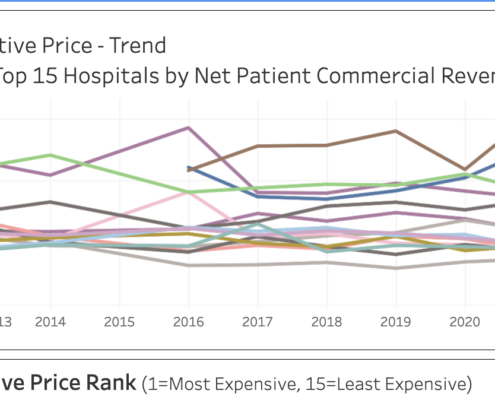
Boston Children’s, MGH Among Massachusetts Hospitals with Highest Relative Commercial Prices
Pioneer Institute's new tool, the Massachusetts Hospital Relative Price Tracker, displays relative price and facilitates relative price comparisons among hospitals. The average price among all hospitals will have a relative price of 1.0. A relative price of 1.5 means that a hospital charges 50 percent higher than the average of all Massachusetts hospitals. Similarly, a relative price of 0.84 means that a hospital’s prices are 16 percent below average. Relative price data is collected and reported by the Commonwealth’s Center for Health Information and Analysis (CHIA) and is an aggregate measure used to evaluate price variations among different hospitals. It is recalculated annually based on data collected from commercial payers and includes information on private commercial insurance and commercially managed public insurance products such as Medicare Advantage and Medicaid Managed Organizations/Accountable Care Partnership Plans.

Middlemen Pushing Up Retail Costs of Drugs
The reality is that non-price factors, including several players, are causing net prices to decline and retail prices to increase. Those players include employers, health plans, and pharmacy benefit managers (PBMs), all of whom have continuously circumvented the system through loopholes and complicated systems of reimbursement that tend to hurt patients

Telehealth Progress Slowed in 2023
A new report by Cicero Institute, Pioneer Institute, and Reason Foundation reveals worrying stagnation in state-level telehealth expansion efforts in 2023, with only a few exceptions. Progress made during the pandemic is being lost even as provider shortages worsen, raising concerns about patients’ access to care.

‘High’ U.S. Drug Prices Mask Freeloading by Other Nations
The drug company’s choice is to walk away from millions in revenue from a given country and deny their people a lifesaving drug, or swallow hard and accept an unfair price that is nowhere near the drug’s value. For the sake of shareholders and patients, drug companies typically accept the unfair price and devote the revenue to offsetting their previous investments. In short, other nations are freeloading off of American R&D.

Drug Discount Distortions: How Middlemen Increase Costs and Reduce Access
Joe Selvaggi talks with Drs. Bill Smith and Robert Popovian about how the complex system of rebates from drug companies to insurance firms serve to increase costs and reduce access for patients.

Study: High List Prices and Deep Discounts for Prescription Drugs Hurt Poor and Sick Patients
A new Pioneer Institute study illustrates how the current system of drug pricing and discounts leads to patients with challenging diseases being charged huge out-of-pocket sums to keep other premiums low, effectively imposing financial penalties on the sick to protect the healthy and wealthy.

Out-of-Pocket Pirates: Spotlight on Accumulator & Maximizer Programs
A new white paper, "Out-of-Pocket Pirates: Pharmacy Benefit Managers (PBMs) and the Confiscation of Copayment Assistance Programs," examines how the way these programs are implemented is having negative impacts on patients living with serious diseases.

As COVID-19 Emergencies Ease, Some Progress on Telehealth Rules
A new report from Reason Foundation, Cicero Institute and Pioneer Institute rates every state’s telehealth policy for patient access and ease of providing virtual care. The report highlights telehealth policy best practices for states.
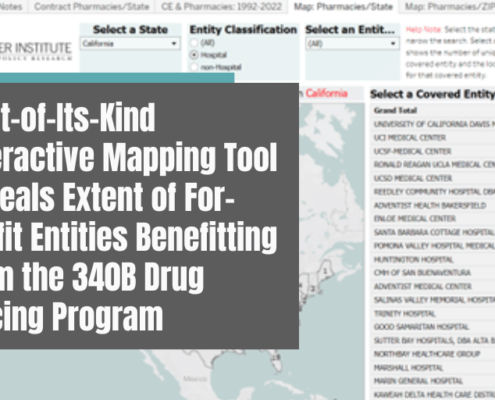
First-of-Its-Kind Interactive Mapping Tool Reveals Extent of For-Profit Entities Benefitting from the 340B Drug Pricing Program
Today, Pioneer Institute released a first-of-its-kind, 50-state mapping tool and database highlighting the troubling way in which hospitals and covered entities leverage unlimited pharmacy contracts under the 340B Drug Pricing Program.
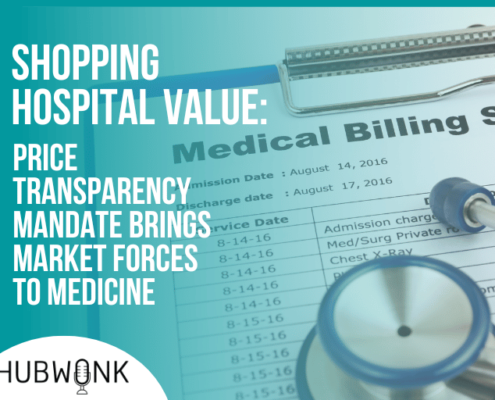
Shopping Hospital Value: Price Transparency Mandate Brings Market Forces to Medicine
Hubwonk host Joe Selvaggi talks with Pioneer Institute's senior healthcare fellow Barbara Anthony about her recently released paper, Massachusetts Hospitals: Uneven Compliance with New Federal Price Transparency Law, and how price transparency can empower consumers to shop for better value and encourage hospitals to offer more competitive costs.
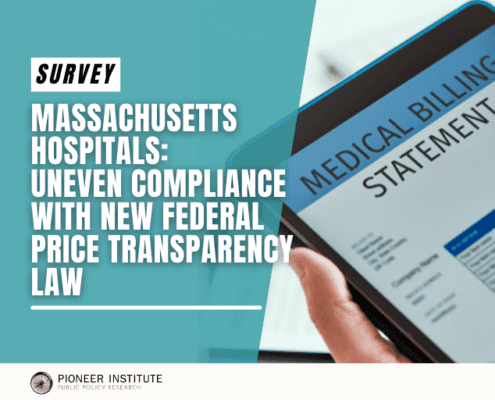
Survey Finds Spotty Compliance Among Hospitals with Federal Price Transparency Law
A 2019 federal law requires hospitals to make prices for 300 shoppable services available online in a “consumer-friendly format,” but a Pioneer Institute survey of 19 hospitals finds that information on discounted cash prices—the price most likely to be charged to consumers paying out of pocket—was unavailable at seven of those hospitals.

Right To Save: Paying Healthcare Consumers To Shop For Value
This week on Hubwonk, host Joe Selvaggi talks with healthcare policy expert Josh Archambault about the findings from his Cicero Institute report, The Right to Save: The Next Generation of Price Transparency. He outlines how to incentivize healthcare consumers to utilize price information to reduce out-of-pocket costs, and lower healthcare costs for everyone.
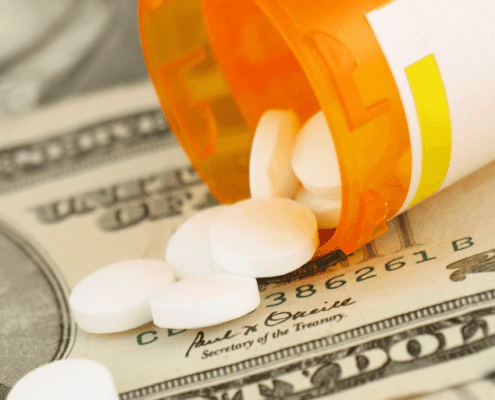
Is CHIA’s Drug Cost Data Reliable?
Earlier this year, the Center for Health Information and Analysis (CHIA) released its Annual Report on the Performance of the Massachusetts Health Care System for 2020. The Massachusetts Legislature relies on CHIA data when considering bills to regulate drug costs and prices. The advocacy group Health Care for All reported that CHIA data showed prescription drug spending grew by 7.7 percent in 2020, more than twice the benchmark - but the most reliable data on prescription drugs indicates that spending in 2020 was essentially flat.

Is this PBM tactic blocking healthcare access?
Utilization Management (UM) was originally a strategy designed to improve the safety, quality, and cost-effectiveness of physician prescribing. However, UM has grown exponentially over the last decade, becoming more a tactic for Pharmacy Benefit Managers (PBMs) to manage costs to benefit their bottom line.
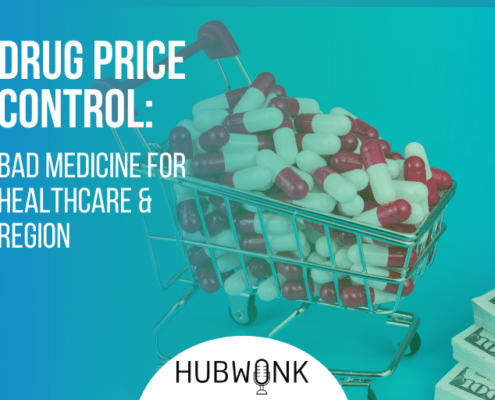
Drug Price Control: Bad Medicine for Healthcare and Region
Hubwonk host Joe Selvaggi talks with Dr. Bill Smith, Director of Pioneer Institute’s Life Sciences Initiative, about the impact of the Inflation Reduction Act on long-term health costs. They discuss the bill's unintended consequences, potential effect on the region’s vibrant pharmaceutical research and development sector, and what citizens can do about it.
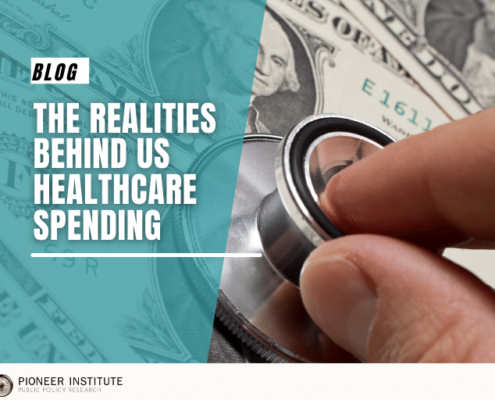
The Realities Behind US Healthcare Spending
Healthcare policy is an all-encompassing term. It plays a role in every individual’s life; how it is curated, developed, and maintained has a significant long-term impact on the quality of life of any given community. It is critical that policymakers consistently adapt and amend healthcare policies in the ever-changing global pricing and affordability environment while providing funding support for optimal quality of care.

Healthcare dominates the job market.
Healthcare and social assistance are among the most important…

Drug Cost Disruption: Direct Generic Access Can Save Consumers Billions
Hubwonk host Joe Selvaggi talks with Dr. Hussain Lalani about his recently published research on the potential for more than $3 billion in savings were Medicare to use Mark Cuban’s new direct-to-consumer drug company to purchase generics.
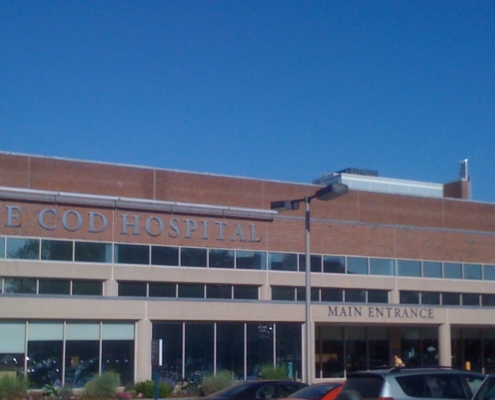 This file is licensed under the Creative Commons Attribution 2.0 Generic license.
This file is licensed under the Creative Commons Attribution 2.0 Generic license. Healthcare Employs More on Cape Cod Than Any Other Sector
Despite being a major tourist destination, the largest employment sector on Cape Cod is not related to tourism: it is healthcare!
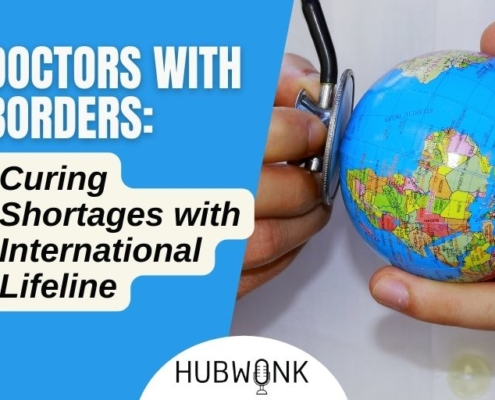
Doctors With Borders: Curing Shortages With International Lifeline
This week on Hubwonk, host Joe Selvaggi talks with Cicero Institute’s Jonathan Wolfson about the growing doctor shortage and the potential to alleviate the crisis by tapping the global supply of well-trained physicians eager to find safety and freedom in the US.
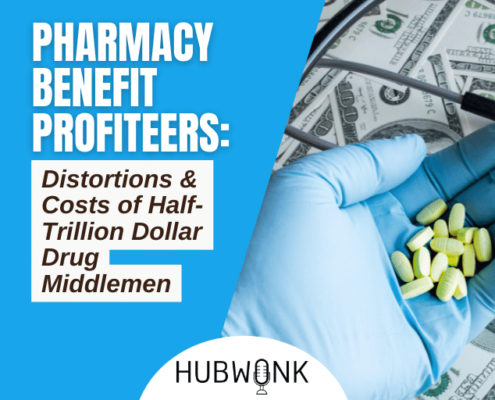
Pharmacy Benefit Profiteers: Distortions and Costs of Half-Trillion Dollar Drug Middlemen
Hubwonk Host Joe Selvaggi talks with ALVA10 Chief Executive Hannah Mamuszka and Dr. Blake Long about the perverse incentives imposed by Pharmacy Benefit Managers adding nearly $500 billion to U.S. drug costs.
